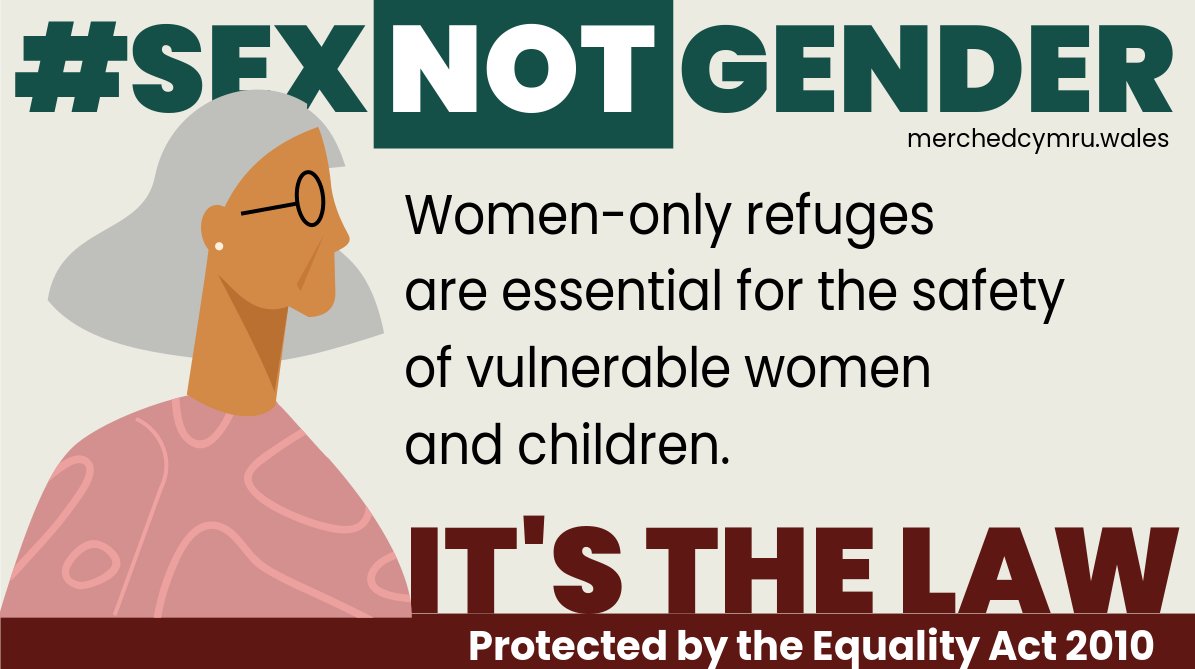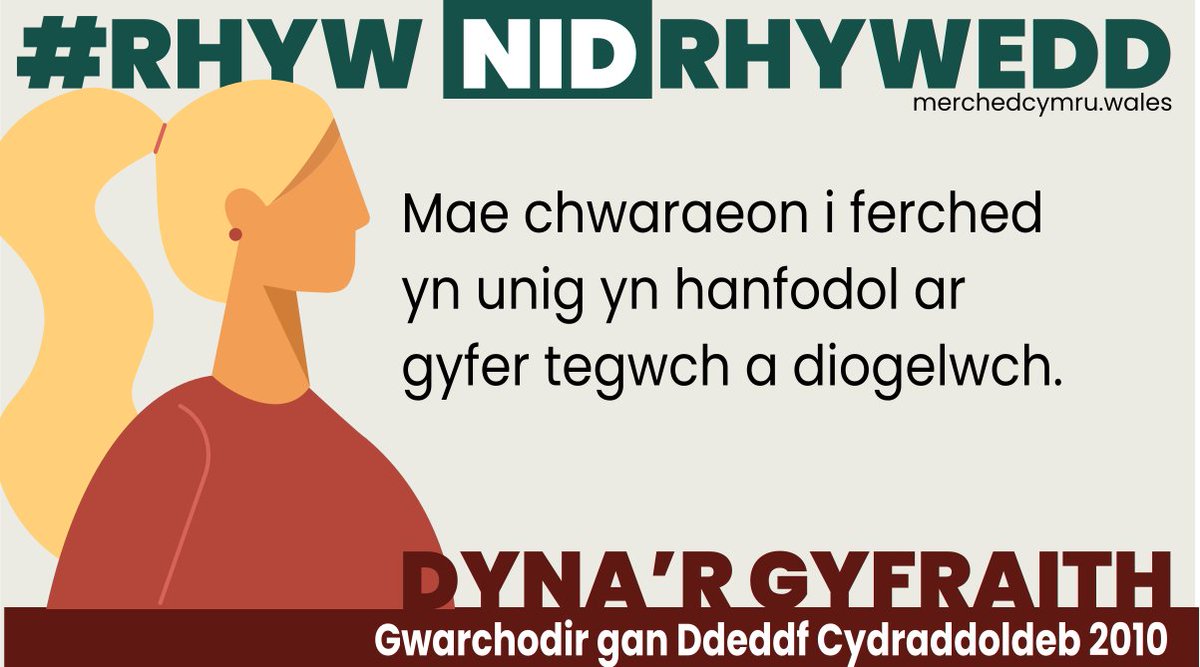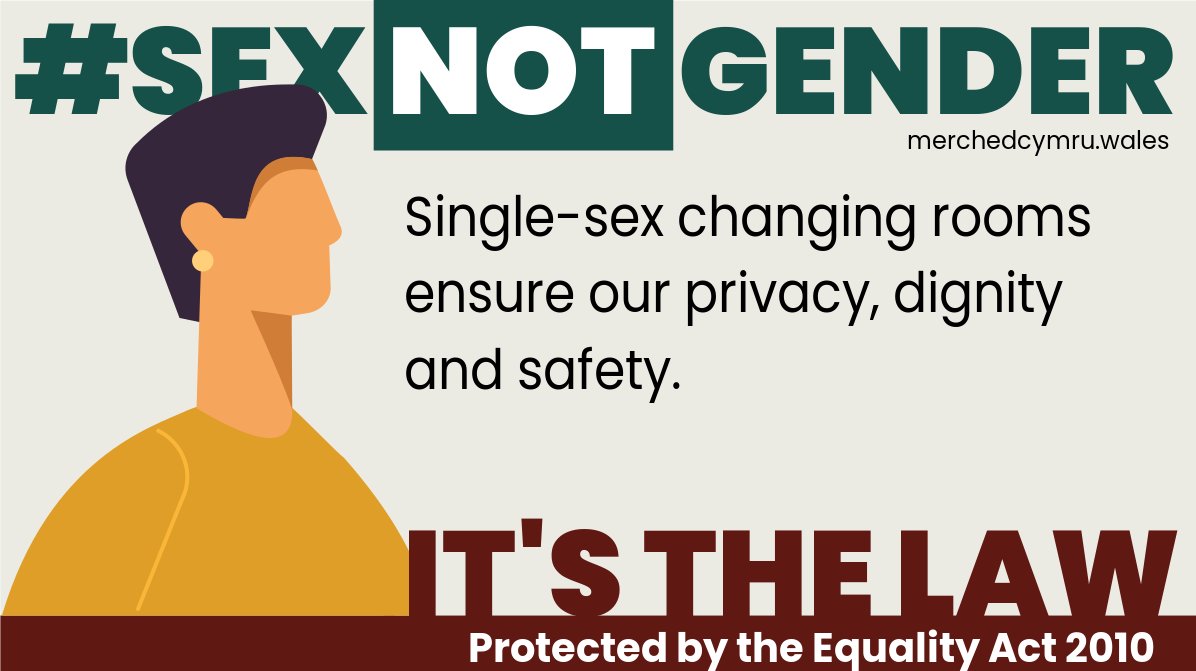
Golyga eithriadau un rhyw Deddf Cydraddoldeb 2010 ei bod yn gyfreithlon darparu ystafelloedd newid i ferched a merched yn unig - ar sail #RhywNidRhywedd. Arferai’r rhain fod yn gyffredin mewn siopau, pyllau nofio a chanolfannau chwaraeon. Ond mewn ymgais i arbed costau adeiladu > 

> neu oherwydd pwysau i fod yn flaengar ac yn “gynhwysol”, mae llawer yn cael eu hail-labelu'n dawel fach fel rhai rhywedd-niwtral neu unrhywiol. Ymhell o fod yn gynhwysol, mae ystafelloedd newid rhyw cymysg yn golygu y bydd llawer o fenywod yn hunan-eithrio; weithiau oherwydd >
> rhesymau crefyddol, ond yn aml oherwydd pryderon ynghylch diogelwch, preifatrwydd, urddas a foyeuriaeth. Mae hawliau ac anghenion menywod yn cyfrif hefyd. Mae ystafelloedd newid un rhyw yn ffordd gymesur o sicrhau ein preifatrwydd a'n hurddas - ac mae'n gyfreithlon eu cael.
• • •
Missing some Tweet in this thread? You can try to
force a refresh








